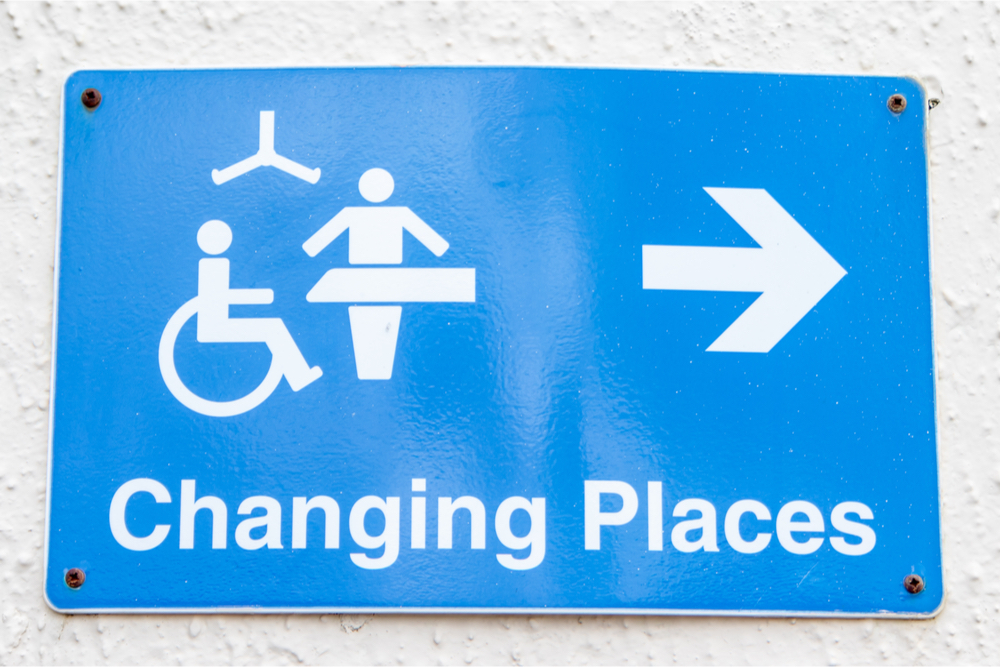
Changing Places toilets to be compulsory in new public buildings
A major change to building rules in England will require thousands of Changing Places toilet facilities to be designed and built into new public buildings, from next year.
Changing Places toilets are larger and include equipment such as hoists, curtains, adult-sized changing benches and space for carers.
The Ministry of Housing, Communities & Local Government says the large (12m2), well-equipped toilets will help more than 250,000 severely disabled people have greater access to public places.
The government estimates it will add the toilets to more than 150 new buildings a year.
Places of assembly, recreation and entertainment with a capacity for 350 or more people will be required to install the facilities if they are newly built or have a major refurbishment.
They include art galleries, cinemas, concert halls, conference centres, further education colleges, universities, hotels that include leisure facilities, libraries, motorway services, museums, places of worship, and theatres.
Shopping centres or retail parks with gross floor areas of 30,000m2 or more, retail premises of 2,500m2 or more, sport or leisure buildings over 5,000m2, and stadia, theme parks, zoos, or exhibition centres with a capacity above 2,000 people will also be included in the rules.
Building Accessibility Minister Lord Greenhalgh said: “For too long, the lack of Changing Places toilets has meant that severely disabled people have faced severe difficulties in attending public places.
“Changing Places toilets give disabled people and their carers the space and equipment they need to have the confidence to leave their homes and go out. We are making the installation of these toilets compulsory in hundreds of new public buildings in years to come to help bring major, life enhancing freedoms to the more than 250,000 people who need them.”
Rob Burley, director of campaigns, care and support at Muscular Dystrophy UK, said: “This is huge news for the quarter of a million people in the UK who need Changing Places toilets. Having access to these much-needed facilities increases independence and improves quality of life.
“This legislation will make it easier for disabled people and their families to enjoy activities that many take for granted, whether that’s a day’s shopping or attending a concert. None of this would have been possible without the hard work of our wonderful campaigners. Thanks to everyone working together, we have taken a big step towards ensuring Changing Places toilets will be more widely available to everyone who needs them and tackling the exclusion people face.”
Meanwhile, a £30 million fund to install Changing Places in existing venues will open in the next few months
There are more than 1,400 Changing Places toilets in the UK, up from just 140 in 2007, but many more are needed. The Department for Transport, in partnership with Muscular Dystrophy UK, has also announced £1.27 million to install 37 more changing places at service stations across England. This will mean 87 of England’s 118 service stations will have Changing Places toilets in them by the early 2020s.
This investment is part of the government’s Inclusive Transport Strategy, which aims to provide equal access to transport by 2030, with assistance if physical infrastructure remains a barrier.
The Changing Places Consortium launched its campaign in 2006 on behalf of the over 250,000 people who cannot use standard accessible toilets. This includes people with profound and multiple learning disabilities, motor neurone disease, multiple sclerosis, cerebral palsy, as well as older people.
To find your nearest Changing Places toilet, click here.